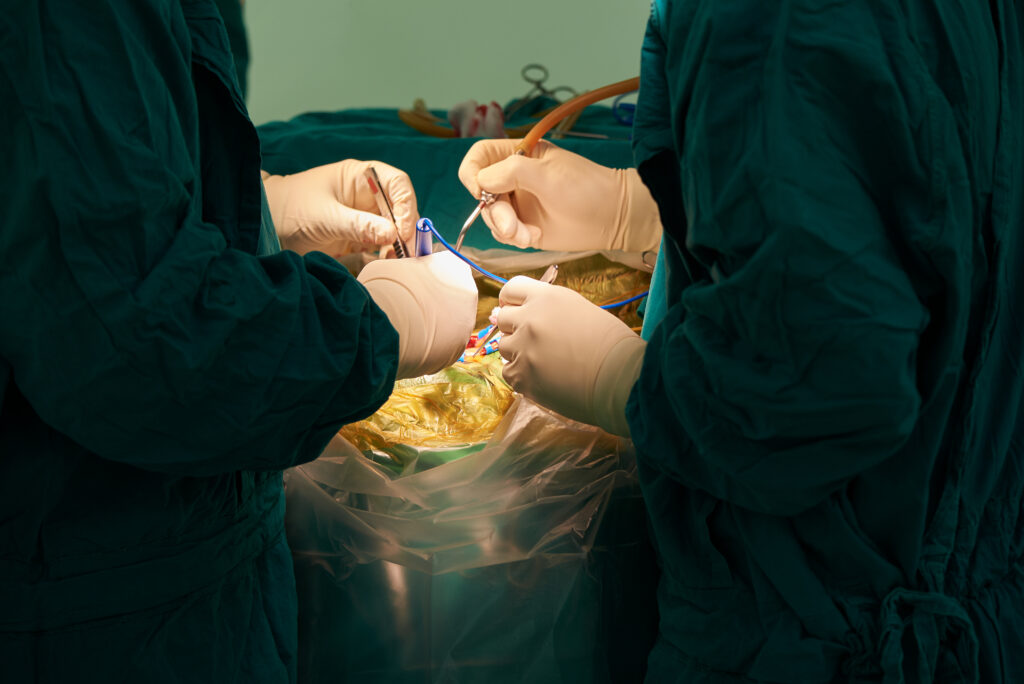(Dr Mfundisi Neurosurgeon, Facebook)
Neuroscience, the study of brains, spines and nervous systems, should become a standard element of health systems, says South Africa’s third black female neurosurgeon.
Coceka Mfundisi was the first woman to graduate with a master’s in neurosurgery from the University of Pretoria, and only the second black woman to be admitted to the College of Neurosurgeons of South Africa.
Mfundisi says that African governments must invest in her field to help patients avoid long-term impairments and health problems.
You became the first woman to qualify as a neurosurgeon from the University of Pretoria in its more than 100-year history. Why do we need black women in neurosurgery?
Since medical school, I have had a great interest in neurology, psychiatry and neurosurgery. I was quite fascinated by the whole subject of neuroscience. I felt that it’s nice and challenging to attain that knowledge, but also to be able to translate that knowledge into an African context.
I started training as a neurosurgeon under the University of Pretoria … and became the first woman of any race to qualify purely because I got there, bit the bullet, and basically just stuck my head into it. It’s important to have Africans in general in the neurosciences, because the topic is complex, it’s not very easily translated into our context of living.
When did you decide that neurosurgery was what you wanted to do?
 Two neurosurgeons standing and doing brain surgery in operating room. (Getty Images)
Two neurosurgeons standing and doing brain surgery in operating room. (Getty Images)
I can remember as if it was yesterday. I got invited by a mentor who was doing neurosurgery at University of Cape Town, which is where I was doing my undergrad. I went to theatre with him and observed him operating on a brain tumour.
So, I had seen the patient before they went to theatre. After this operation, the patient was fine: it’s a complex surgery of opening the skull and exposing the brain, and then you have a fully functional person within days afterwards. And this was a very drastic improvement that I saw on the patient. So that excited me a great deal.
I imagine that after seeing that procedure, a lot of people would be put off. You’re also a paediatric surgeon, what’s the most challenging part of your work? Are there heart-warming moments?
My job is like any other — I just happen to open heads and open spines. I feel quite privileged to be able to care for human beings and be trusted by them to make them feel better. Of course, it’s a job that requires a high level of concentration, particularly when you’re in theatre.
There are many heart-warming moments [working with children]. I’ve got three small children, and you meet a parent who is distraught and devastated by the news, for example, of their child having a brain tumour. There are times of course, unfortunately, when there is nothing that can be done. But in the most, children are very rewarding to treat. They bounce back. They help you along.
I usually say to colleagues that one of the most important things about a child is that when you’re operating on them, you just need to keep them alive during the operation — if you keep them alive you’ve conquered the majority of the challenge — and then after that, you let them play and let their brains recover, reconnect and wake up other cells that are dormant and that are now needed. It’s peppered with moments of greatness and just pure exhilaration and joy.
You grew up in a village and were raised by a widowed woman, what values were instilled in you that you still work with now?
Hard work is the only way to get to where you want to get. My grandmother instilled discipline and an attitude of resilience when one is pursuing a goal. I was fortunate I grew up in a home where my talents and my intellectual abilities were acknowledged quite early on, and they were nurtured and encouraged. We were very privileged to have such an environment and a home that encouraged that. [My grandmother] was a very hardworking woman and also insisted on the same from the grandchildren.
This interview has been edited for clarity and brevity. It was produced by SciDev.Net’s sub-Saharan Africa desk; the original can be found here.